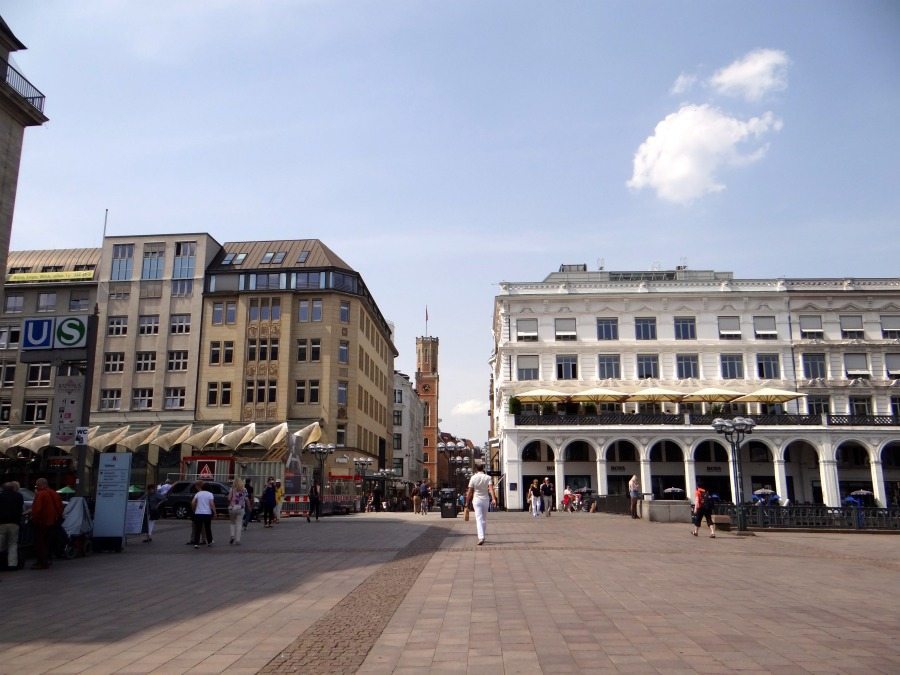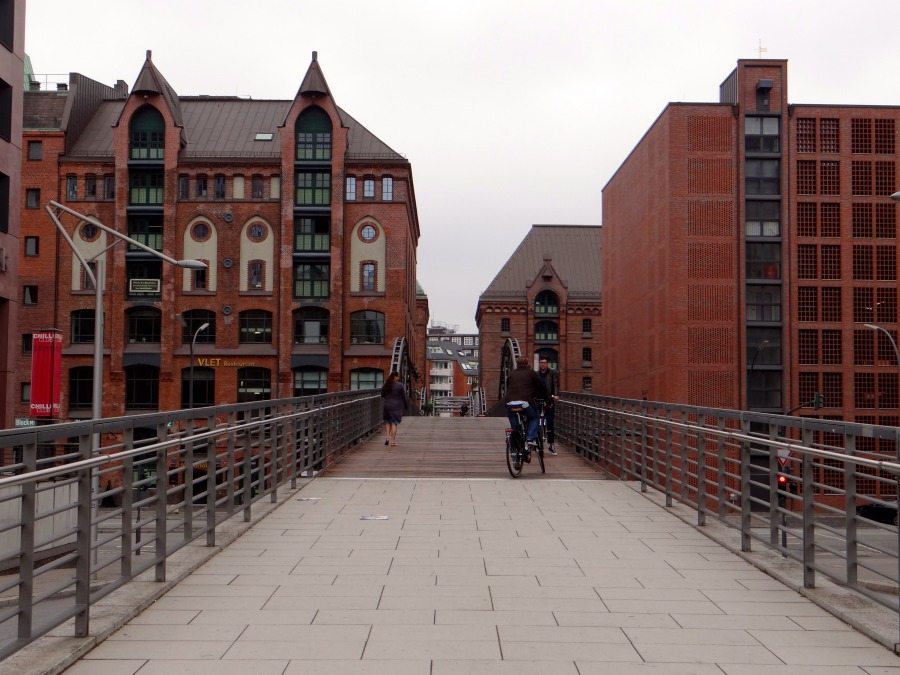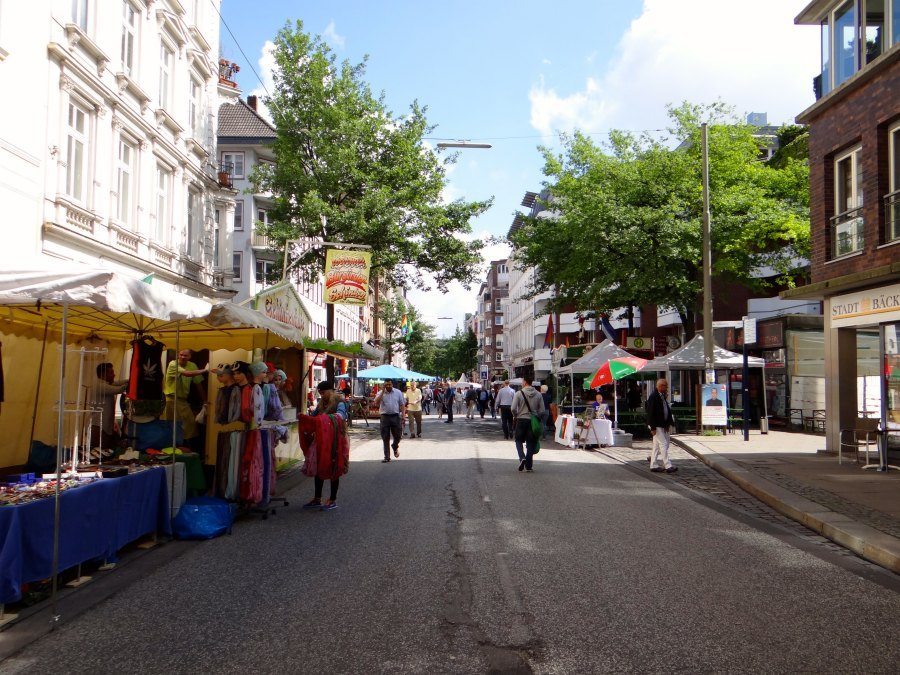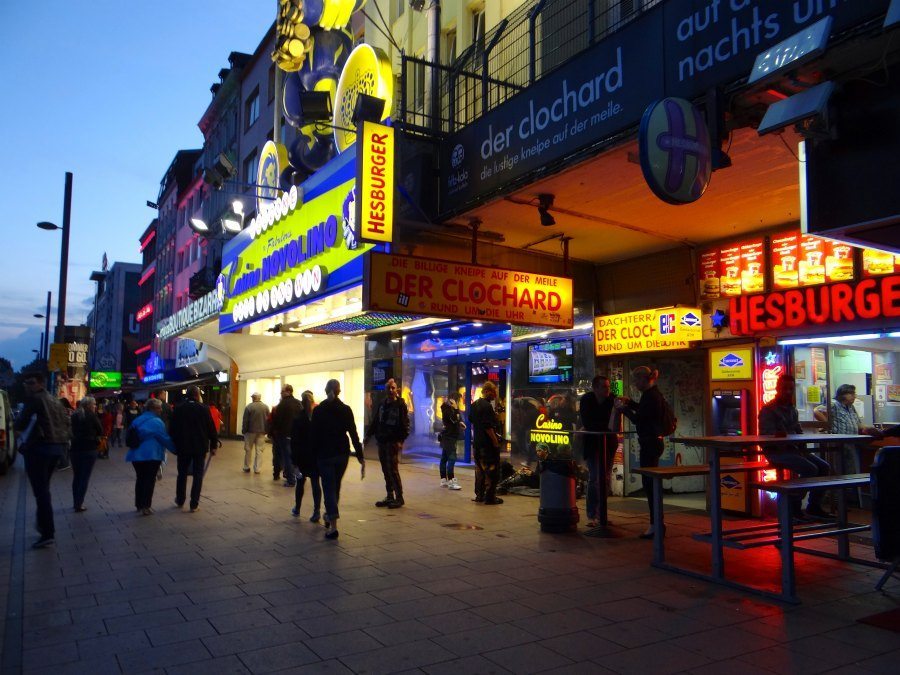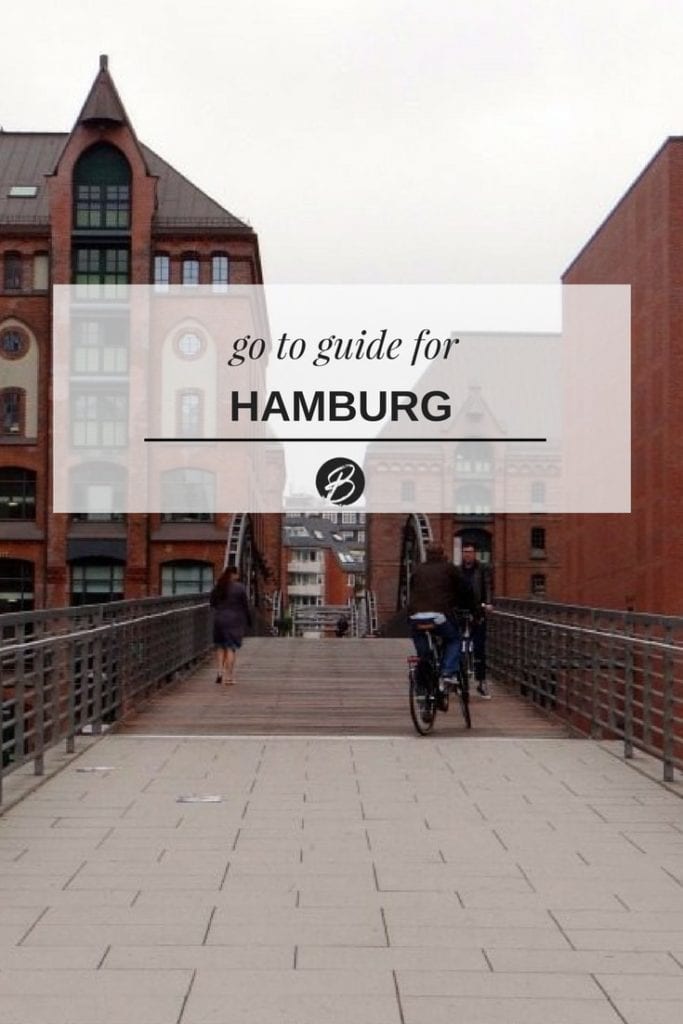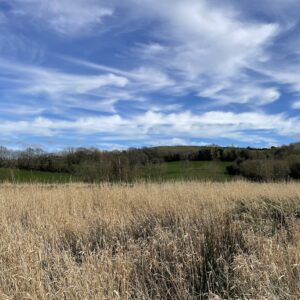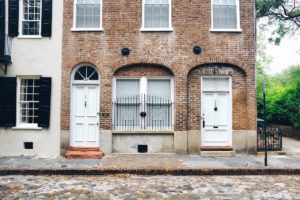Hamburg is most definitely a neighborhood city so as expected, I had a field day biking through them all. For the most part, Hamburg is already pretty established yet there are many changes in the works to drastically modernize the city as a whole. Many of the areas have or are currently experiencing gentrification, with HafenCity undergoing a complete revamp. There are a lot of neighborhoods in Hamburg but these few are my favorites and in my opinion, the most appealing to any bohemian traveler looking to experience the city’s more alternative side.
If you’re interested in participating in the same bike tour I did (and I highly recommend it because my guide was great!) you can sign up with StadtRAD ahead of time. Another good option is Hamburg City Cycles.
Old Town / City Center
Like many European cities, the Old Town (Altstadt) serves as the Hamburg’s City Center. There’s technically a New Town (Neustadt) as well but if you look at a map, you’ll notice that these are somewhat meshed together. The newer side has more parks while the older side houses many of Hamburg’s historic buildings, pedestrian walkways and monuments. This is probably the most traditional-looking district in Hamburg but it’s not to be overlooked. I suggest heading to the harbor for a picturesque view of the city or shopping for local spices at the market. Rathausmarket (pictured below) is the center of all the action and is located next to City Hall. This is a good starting or ending point.
Sternschanze
By far Hamburg’s most bohemian neighborhood, Sternschanze, or simply “Schanze,” is where all the hipsters live, work and play. There are also cafes, bars, restaurants and nightclubs to keep people entertained at all hours of the day and night. If you’ve ever visited Berlin, this neighborhood might feel a bit familiar. It’s gone through gentrification but there’s still a gritty appeal to the streets and a feeling of creativity in the air, as seen through the colorful street art lining the walls, weekend flea markets and a mixture of rundown and renovated buildings.
Schanze belongs to the borough of Altona, an up-and-coming area that boasts a bohemian and multicultural culture. Ottensen high street is the go-to place for shopping and clubbing and for live music, go to Fabrik.
HafenCity
There are lots of exciting changes happening in Hamburg and many of them are taking place in HafenCity, the city’s newest quarter. This mostly upscale residential area has been revamping abandoned warehouses into fancy offices, hotels, shops and cultural museums. As our tour guide explained, right now most of HafenCity is occupied by the wealthiest inhabitants who own several homes, which might explain why the neighborhood feels much quiet than most. The HafenCity project master plan covers ten different neighborhoods of different sizes so we can expect a lot of new developments in this part of Hamburg.
Just north of HafenCity is the Speicherstadt, the largest imber-pile warehouse in the world and also formerly part of the free zone. The Hamburg Dungeon, the Miniaturwunderland or the Deutsches Zollmuseum are all located here.
St. Georg
I spent my last morning in town walking through the St. Georg neighborhood. Just a short walk from the city center, St. Georg is Hamburg’s gay district and in my opinion, one of the most architecturally stunning. I wandered along Lange Reihe on a Saturday morning and things were already starting to pick up. Along the streets are cafes where locals get together for brunch, fashion and accessories stores and on this particular day, a street fair was about to take over the neighborhood. I saw several pop-up bars, a few rather impressive food stands with mobile ovens and even a few interactive games for children. All in all, this family-friendly area is one of Hamburg’s most frequented areas.
Karolinenviertel
Located in the northern part of St. Pauli is the tiny neighborhood of Karolinenviertel. The main street is Marktstraße and while the area is mostly gentrified, there still plenty of hints of what the streets looked like before. Despite its quaint appearnce, the shops are surprisingly innovative.
Head to Maison Suneve, a Hamburg-based fashion label that designs womenswear, for pieces blending French and German minimalism and elegance. Their work is mostly inspired by digital prints and abstract shapes and if you look closely at some of their dresses from last season, you’ll see that the prints are actually based on some of the world’s most famous architectural buildings and landmarks.Similarly, Lockengeloet sells unique handmade items made from recyclable materials. Everything, from the oil barrels that become cupboards to the vinyl records that turn into wall lamps or books, are produced locally in St. Pauli.


St. Pauli
Also known as “Kiez,” St. Pauli is a avant-garde blend of culture, grittiness and entertainment. It’s Hamburg’s Red Light District but don’t let that deter you. The streets north of the Reeperbahn are more appropriate for day activities, as there are many cafes, restaurants and art galleries to visit. The streets south of the Reeperbahn are more nightlife-centric, so plan on hitting up a few bars and clubs in this part of town. Beatles’ fans should visit INDRA (Große Freiheit 64), where they band first performed. You can also stop by the apartment where they used to live, which is about a two minute walk from the infamous venue. To catch some of the after parties, head to the fish market on Landungsbruecken.
This trip was hosted by Hamburg Tourism. All opinions are my own. I stayed at 25hours Hotel Hamburg during my stay.
Like me on Facebook and Tweet me: @BohemianTrails
Sign up for my free monthly BOHO BLAST!
Pin this for later!

